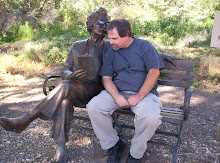Sri Ramana Maharshi replies:
"By the inquiry 'Who am I?'.
The thought 'Who am I?' will destroy all other thoughts,
and like the stick used for stirring the burning pyre,
it will itself in the end get destroyed.
Then, there will arise Self-Realization."
The questioner asks: "What is the means for constantly holding on to the thought 'Who am I?'"
Sri Ramana Maharshi replies:
"When other thoughts arise, one should not pursue them,
but should inquire: 'To whom do they arise?'
It does not matter how many thoughts arise.
As each thought arises, one should inquire with diligence,
'To whom has this thought arisen?'.
The answer that would emerge would be 'To me".
Thereupon if one inquires 'Who am I?',
the mind will go back to its source;
and the thought that arose will become quiescent.
With repeated practice in this manner,
the mind will develop skill to stay in its source." ![]() The questioner asks:
The questioner asks:
"Are there no other means for making the mind quiescent?"
Sri Ramana Maharshi replies:
"Other than inquiry, there are no adequate means.
If through other means it is sought
to control the mind, the mind will appear
to be controlled, but will again go forth." ![]()
The questioner asks:
"How long should inquiry be practised?"
Sri Ramana Maharshi replies:
"As long as there are impressions of objects in the mind,
so long the inquiry 'Who am I?' is required.
As thoughts arise they should be destroyed
then and there in the very place of their origin,
through inquiry.
As long as there are enemies within the fortress,
they will continue to sally forth;
if they are destroyed as they emerge,
the fortress will fall into our hands."
The questioner asks:
"Is it not possible for God and the Guru
to effect the release of a soul?"
Sri Ramana Maharshi replies:
"God and Guru will only show the way to release;
they will not by themselves take the soul to the state of release.
Each one should by his own effort pursue the path shown by
God or Guru and gain release."
The questioner asks:
"Is it any use reading books for those who long for release?"
Sri Ramana Maharshi answers:
"In order to quiet the mind one has only to
inquire within oneself what one's Self is;
how could this search be done in books?
The Self is within the five sheaths; but books are outside them.
Since the Self has to be inquired into by discarding the five sheaths,
it is futile to search for it in books."
The questioner asks:
"What is release?"
Sri Ramana Maharshi answers:
"Inquiring into the nature of one's self that is in bondage,
and realizing one's true nature is release."
The questioner asks:
"If 'I' also be an illusion, who then casts off the illusion?"
Sri Ramana Maharshi replies:
"The 'I' casts off the illusion of 'I' and yet remains as 'I'.
Such is the paradox of Self-Realization.
The realized do not see any contradiction in it.
You give up this and that of 'my' possessions.
If you give up 'I' and 'Mine' instead,
all are given up at a stroke.
The very seed of possession is lost.
Thus the evil is nipped in the bud or crushed in the germ itself.
Dispassion (vairagya) must be very strong to do this.
Eagerness to do it must be equal to that of
a man kept under water trying to rise to the surface for his life."
The questioner asked:
"Cannot this trouble and difficulty be lessened with the aid of a Master or God chosen for worship? (Ishta Devata)
Cannot they give the power to see our Self as it is to change us into themselves and take us to Self-Realization?"
Sri Ramana Maharshi replies:
"Ishta Devata and Guru are aids very powerful aids on this path.
But an aid to be effective requires your effort also.
Your effort is sine qua non (an indispensable or essential condition, element, or factor).
It is you who should see the sun. Can spectacles and the sun see for you?
You yourself have to see your true nature.



